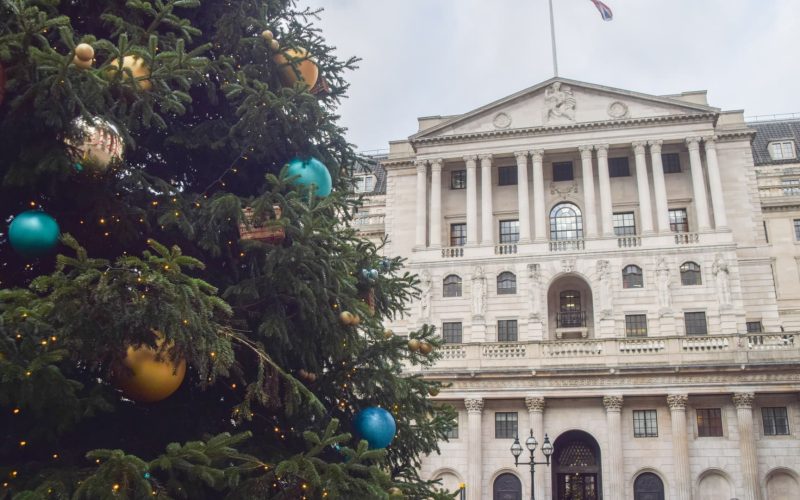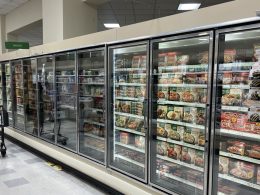The Bank of England pictured in December 2024.
Sopa Images | Lightrocket | Getty Images
LONDON — The Bank of England on Thursday ended its last meeting of the year with a decision to leave interest rates unchanged, after U.K. inflation rose to an eight-month high.
Analysts had widely expected a rate hold at the December meeting, as policymakers remain concerned with stubborn services inflation and wage growth.
The BOE has already taken its key rate from 5.25% to 4.75% this year in two quarter-percentage-point moves.
In a deviation from expectations, three members of the Monetary Policy Committee voted to reduce rates, while six were in favor of a hold. Economists polled by Reuters had forecast only one member would vote to cut.
Sterling pared gains against the U.S. dollar directly following the BOE announcement, trading 0.2% higher at 12:22 p.m. The greenback staged a broad rally on Wednesday after the U.S. Federal Reserve cut interest rates by a quarter point but signaled a more hawkish outlook for 2025. It gave up some gains on Thursday morning.
GBP/USD.
In a statement, the BOE said the increase in U.K. headline inflation in November to 2.6% was slightly higher than previously expected, adding that services inflation remained “elevated.”
BOE staff also downgraded their economic forecast for the fourth quarter of 2024, now predicting no growth, compared with the 0.3% expansion predicted in its November report.
U.K. growth figures have come in weaker than expected in recent months, with the economy posting a surprise 0.1% contraction in October.
Money markets this week pared back bets on the pace of further trims next year after the publication of data on inflation and summer wage growth, and are now pricing in roughly 50 basis points of upcoming cuts, down from an outlook of around 70 basis points’ worth of cuts on Monday.
“The split vote decision and the dovish tone of the minutes suggest that a February interest rate cut remains very much in play, if not yet a done deal,” Suren Thiru, economics director at the Institute of Chartered Accountants in England and Wales, said in emailed comments.
“The Bank of England risks backing itself into a corner over the pace of policy loosening because, with inflation likely to drift higher, the timing of future interest rate cuts could become increasingly complex, especially if stagflation fears become reality.”
This is a breaking news story and will be updated shortly.
Source link









